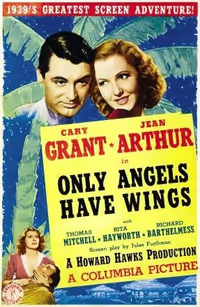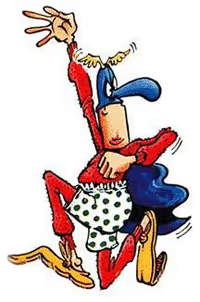Award Winning Playwright Almost Slaps a Theatre Patron (and what that apparently says about our theatre)
#25Award Winning Playwright Almost Slaps a Theatre Patron (and what that apparently says about our theatre)
Posted: 12/10/15 at 1:12am
A Director said: "I will defend your right to comment on Dominique Morisseau article, but I wonder why you feel the need to call her Miss Thing?...As you middle aged, white, gay man, why do you feel the need to reduce an African-American woman to just a thing? Is this your way of putting Dominique Morisseau in her place?"
What are you talking about? "Miss Thing" doesn't mean that he is saying she is not worthy of being referred to as a person. Miss Thing is someone who thinks they are better than everyone else. Usually Miss Thing is not very polite and she demands respect even when she doesn't deserve it. And, like the author of this ridiculous article, she has a chip on her shoulder.
#26Award Winning Playwright Almost Slaps a Theatre Patron (and what that apparently says about our theatre)
Posted: 12/10/15 at 5:58am
The whole story seems really fake to me. There are so many inconsistencies and assumptions it's like the author had a point to make and devised a narrative to fit her agenda. The author has placed so many motivations in Jane's head it's as if she's treating Jane as one of her characters.
Without hearing the other woman's side of things I can't take this seriously.
The truth, as they say, lies somewhere in the middle.
Not taking one side's story as fact without hearing from the other party isn't casual racism. It's common sense.
GoblinKing2
Understudy Joined: 10/24/15
#27Award Winning Playwright Almost Slaps a Theatre Patron (and what that apparently says about our theatre)
Posted: 12/10/15 at 7:29am
I never realized that when my son and I got upset with my wife the other night for talking during the Hunger Games and telegraphing who Katniss was going to shoot with that arrow near the end we were engaging in some kind of elitist and supremacist microagressive behavior against her. He always gets me in trouble.
#28Award Winning Playwright Almost Slaps a Theatre Patron (and what that apparently says about our theatre)
Posted: 12/10/15 at 8:35am
I love young 20-somethings who have realized that it's their mission to tell the entire world how they should be (need it be stated that they should be exactly like said 20-something?).
But I will say this - if someone gave me a free ticket to a show I wanted to see, I would be excessively grateful rather than antagonistic, no matter how that person behaved. There is something of a debt there. (The gum popping comment sounds to me as though it could very possibly have been a dryly-delivered joke; the article, as written, does suggest that the author doesn't have much of a sense of humor [let alone humility].)
#29Award Winning Playwright Almost Slaps a Theatre Patron (and what that apparently says about our theatre)
Posted: 12/10/15 at 10:01am
I agree with Taz...the whole scenario seems made up so this woman could write this article.
"In Oz, the verb is douchifizzation." PRS
#30Award Winning Playwright Almost Slaps a Theatre Patron (and what that apparently says about our theatre)
Posted: 12/10/15 at 10:06am
"The author has placed so many motivations in Jane's head it's as if she's treating Jane as one of her characters."
I have found that it's far from unusual for playwrights and novelists to treat the people around them as characters in their work. Solipsism and narcissism can be good tools for a writer.
#31Award Winning Playwright Almost Slaps a Theatre Patron (and what that apparently says about our theatre)
Posted: 12/10/15 at 10:58am
American Theater, the way to build a younger, more racially and economically diverse audience is to support the funding and creation of theaters whose main goal is to build a younger, more racially and economically diverse audience.
#32Award Winning Playwright Almost Slaps a Theatre Patron (and what that apparently says about our theatre)
Posted: 12/10/15 at 11:04am
The usual response to that brand of wonderful yet Utopian suggestion can only be "good luck with that!"
#33Award Winning Playwright Almost Slaps a Theatre Patron (and what that apparently says about our theatre)
Posted: 12/10/15 at 11:16am
You know what you should do when you see a show? Sit in silence. This isn't a race issue, this is an issue of a whiny you-know-what using the Internet as her personal diary. Some people frustrate me to no end.
#34Award Winning Playwright Almost Slaps a Theatre Patron (and what that apparently says about our theatre)
Posted: 12/10/15 at 11:27am
Of course, it is much cheaper and easier to engage in increasingly refined policing of language.
Brick
Broadway Legend Joined: 11/21/06
#35Award Winning Playwright Almost Slaps a Theatre Patron (and what that apparently says about our theatre)
Posted: 12/10/15 at 11:35am
The lack of awareness of privilege in this thread is astounding. And tone policing is as old as time, or at least as racism.
Everyone knows this is an actual issue, especially based on the kind of frequent threads of complaining of these "new audiences" coming to the theatre and asking whether or not they will "ruin your experience". And yet, instead of looking at the call for diversity in the theatre as something that runs up against the primary audience's desire to keep the experience identical to its current values, everyone is attacking her tone.
It's as old as time and yes, as AC126748 said, you might as well call her uppity.
#36Award Winning Playwright Almost Slaps a Theatre Patron (and what that apparently says about our theatre)
Posted: 12/10/15 at 11:44am
The policing of language and etiquette is running on both sides of this argument. What isn't being discussed is structural change.
Updated On: 12/10/15 at 11:44 AM#37Award Winning Playwright Almost Slaps a Theatre Patron (and what that apparently says about our theatre)
Posted: 12/10/15 at 4:05pm
Not taking one side's story as fact without hearing from the other party isn't casual racism. It's common sense.
That's my take on it as well. But somehow, that will be considered racist as well. I'm sure someone will provide a detailed explanation why shortly.
#38Award Winning Playwright Almost Slaps a Theatre Patron (and what that apparently says about our theatre)
Posted: 12/10/15 at 4:14pm
Because it's so much fun to call everyone else a racist.
#39Award Winning Playwright Almost Slaps a Theatre Patron (and what that apparently says about our theatre)
Posted: 12/10/15 at 4:28pm
"I love young 20-somethings who have realized that it's their mission to tell the entire world how they should be (need it be stated that they should be exactly like said 20-something?)"
Why did you find it necessary to try and generalise this person's behaviour to an entire group of people? (which could obviously offend people in said group). Ridiculous.
#40Award Winning Playwright Almost Slaps a Theatre Patron (and what that apparently says about our theatre)
Posted: 12/10/15 at 4:39pm
We live in the Age of the Offended. I, for one, love it. Offended people are attractive people.
#41Award Winning Playwright Almost Slaps a Theatre Patron (and what that apparently says about our theatre)
Posted: 12/10/15 at 5:31pm
qolbinau said: ""I love young 20-somethings who have realized that it's their mission to tell the entire world how they should be (need it be stated that they should be exactly like said 20-something?)"
Why did you find it necessary to try and generalise this person's behaviour to an entire group of people? (which could obviously offend people in said group). Ridiculous.
"
I hate all of the constant "all Millennials are THE worst" crap you always hear, but in this case there is some context since the Award Winning Playwright brings up the age thing constantly.
#42Award Winning Playwright Almost Slaps a Theatre Patron (and what that apparently says about our theatre)
Posted: 12/10/15 at 5:54pm
gypsy101 said: "A Director said: "I will defend your right to comment on Dominique Morisseau article, but I wonder why you feel the need to call her Miss Thing?...As you middle aged, white, gay man, why do you feel the need to reduce an African-American woman to just a thing? Is this your way of putting Dominique Morisseau in her place?"
What are you talking about? "Miss Thing" doesn't mean that he is saying she is not worthy of being referred to as a person. Miss Thing is someone who thinks they are better than everyone else. Usually Miss Thing is not very polite and she demands respect even when she doesn't deserve it. And, like the author of this ridiculous article, she has a chip on her shoulder.
"
Thank you, gypsy 101, that is exactly what I meant. I've never heard "Miss Thing" used to distinguish an inanimate object from a human being. I was referring to the op ed writer's "MISS I am the most important THING in the room" attitude. Frankly, I think better behavior is mandated when I am someone's guest at an event, but I know from working box offices that for most people the opposite is the case.
And I'll repeat, I think there's nothing wrong with the African tradition of audience participation. I suspect it is much closer to the theaters of Sophocles and Shakespeare than our stuffy modern productions would indicate.
Not only do I know of Yiddish Theater, A Director, I lived in Miami Beach when Yiddish vaudeville still played on Lincoln Road. Not only was there audience participation in the sense we usually mean the term, there were loud and simultaneous audience translations for those who were hard of hearing and/or didn't speak Yiddish. It was quite the rowdy affair--and totally appropriate for the style of theater performed.
If patrons would pay a little attention to the show (rather than writing treatises on white privilege in their heads), they would quickly figure out the appropriate behavior at different styles of theater.
Updated On: 12/10/15 at 05:54 PM
smidge
Broadway Legend Joined: 5/16/06
#43Award Winning Playwright Almost Slaps a Theatre Patron (and what that apparently says about our theatre)
Posted: 12/10/15 at 5:57pm
What bothers me about the article is that the author became beyond enraged and had the desire to slap the woman. If you have that extreme reaction to a disagreement about theater etiquette, you need professional help. And when "Jane" was going to "further chastise" the author she was met with an immediate dismissal of "no more". But then the author seemed displeased when she tried to "engage" "Jane" after the show and was greeted with a similar response. And of all her friends who attended the performance that evening, there was no one who could lend her money for a ticket purchase. Lousy behavior for all parties.
#44Award Winning Playwright Almost Slaps a Theatre Patron (and what that apparently says about our theatre)
Posted: 12/10/15 at 6:09pmWhy are we calling/implying that Dominique Morisseau a millennial? She's in her later thirties.
#45Award Winning Playwright Almost Slaps a Theatre Patron (and what that apparently says about our theatre)
Posted: 12/10/15 at 6:22pm
Brick said: "The lack of awareness of privilege in this thread is astounding. And tone policing is as old as time, or at least as racism.
Everyone knows this is an actual issue, especially based on the kind of frequent threads of complaining of these "new audiences" coming to the theatre and asking whether or not they will "ruin your experience". And yet, instead of looking at the call for diversity in the theatre as something that runs up against the primary audience's desire to keep the experience identical to its current values, everyone is attacking her tone.
It's as old as time and yes, as AC126748 said, you might as well call her uppity.
"
So when Balinese theater patrons fall asleep and even snore during wayang kulit performances (9 hours long and performed, in theory, for the gods, not the humans) are they engaging in yellow privilege? Or is privilege just a white thing?
All communal art forms depend on complex matrices of group conventions. Pretending this is only true of white people and Western European/American forms of theater is disingenuous.
The op ed writer betrays her ignorance (or perhaps just her bias) when she equates theater with religious services and blithely asserts that some people worship silently while others worship loudly. Either form of worship is fine with me, personally, but it is dishonest to pretend that each is equally disruptive and equally benign relative to the other. It simply ain't so.
And for the record, I have never complained about boisterous audience participation at this forum. (I admit I wasn't crazy about it when I first encountered it 35 years ago. Why was the DREAMGIRLS audience screaming so loudly I couldn't hear Jennifer Holliday? And didn't the character basically disappear amid the riotous acclaim for the singer?) But I got over my annoyance as I came to understand the tradition. I still think shouting out during an Ibsen drama is inappropriate for that style of theater, but I can deal with it in the rare event that it happens.
Updated On: 12/10/15 at 06:22 PM#46Award Winning Playwright Almost Slaps a Theatre Patron (and what that apparently says about our theatre)
Posted: 12/10/15 at 6:26pm
Fantod said: "You know what you should do when you see a show? Sit in silence. This isn't a race issue, this is an issue of a whiny you-know-what using the Internet as her personal diary. Some people frustrate me to no end.
"
Most American musicals will fall flat if the audience sits silently. Times for audience response are built into the evening. Likewise, sitting silently at most black African plays completely distorts the experiences.
#47Award Winning Playwright Almost Slaps a Theatre Patron (and what that apparently says about our theatre)
Posted: 12/10/15 at 6:30pm
Kad said: "Why are we calling/implying that Dominique Morisseau a millennial? She's in her later thirties. "
I meant it in a general sense--but Morisseau does seem to imply it was at least as much an "ageist" issue as a racial one
#48Award Winning Playwright Almost Slaps a Theatre Patron (and what that apparently says about our theatre)
Posted: 12/10/15 at 6:49pm
Morisseau seems to either be oblivious or indifferent to her severe abuse of her able-bodied privilege in the situation that she described, in addition to behaving as an egregiously disrespectful and ungrateful guest of the woman who invited her to see a theatre performance for free. There are many people (yes, some of them older than her) who do not hear as well as she does, and who cannot concentrate on what the actors are saying when a lone audience member is calling out and verbalizing at the same time as the actors are speaking. Some people are also less neurotypical than she is and cannot easily separate multiple voices speaking at the same time in order to focus on the ones that they came to focus on (the actors' voices). Obviously clapping when the whole audience has time to clap or laughing when everyone has a pause for laughter (while the actor waits for it to subside before continuing) is not what i'm talking about here. Silence is not needed at all times, but it is needed during the times when the actors are singing or speaking in order for people with limited hearing or concentration to be able to follow. By making noise during the performance that is disruptive enough to be heard by those around her, and by refusing to stop when asked to do so by those being disturbed, Morisseau was ensuring that only fully able-bodied people with good hearing and concentration ability would have the opportunity to enjoy the performance, instead of allowing all people attending the chance to enjoy it.
#49Award Winning Playwright Almost Slaps a Theatre Patron (and what that apparently says about our theatre)
Posted: 12/10/15 at 7:04pm
Damn, that was well put, Adam!
Videos












